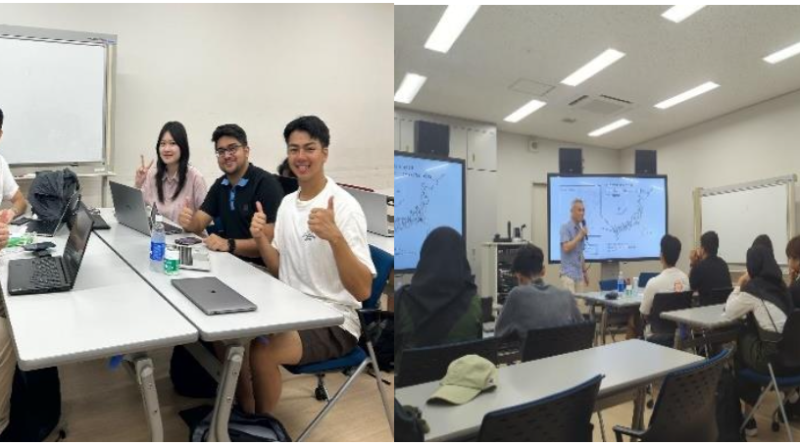UNSRAT Informatics Student Joins Japan’s EBA Program to Address Minamata’s Environmental Legacy
Amid lingering environmental, social, and political issues across Asia, a new generation of student leaders is stepping forward through the Evidence-Based Approach (EBA) Project, a multidisciplinary initiative that emphasizes critical thinking, collaborative research, and community-centered solutions. From August 1 to 8, 2024, a diverse group of participants from across the Asia-Pacific region gathered in Minamata, Japan, to directly engage with one of the region’s most historically significant environmental tragedies — the Minamata Disease.
Among the participants was Tyrone Gilchrist Paat, an undergraduate student from the Informatics Engineering Program at UNSRAT, representing Indonesia in this international fieldwork initiative. The activity was conducted as part of an ongoing collaboration between School of Informatics (SOI) and UNSRAT’s Informatics Engineering Program.

The Minamata Fieldwork centered on applying the EBA method — encompassing data collection, analysis, visualization, and storytelling — to understand and address the enduring impacts of the mercury poisoning incident that devastated Minamata in 1956. Beyond field visits and interviews with local residents and experts, students actively collaborated in cross-cultural, multidisciplinary teams to develop insights and strategies for the city’s revitalization.
This fieldwork highlighted several key goals:
- Equip students with real-world experience in problem-solving, teamwork, and ethical research.
- Offer fresh, research-driven perspectives to local communities seeking sustainable recovery.
- Foster stronger international ties among universities in the Asia-Pacific.
- Raise awareness about the long-term social and environmental dimensions of industrial pollution.

Despite decades having passed since the Minamata Disease outbreak, the city continues to grapple with both physical recovery and the lingering stigma associated with the disaster. The EBA Minamata Fieldwork provided a platform to explore sustainable, inclusive solutions, emphasizing not just historical recognition, but the development of actionable strategies that prioritize empathy, community voice, and scientific analysis.
The collaborative spirit and critical inquiry exemplified by Tyrone and his fellow participants showcase the transformative potential of regional academic partnerships in addressing complex, unresolved issues of the past — and charting a hopeful, inclusive path forward for affected communities.


